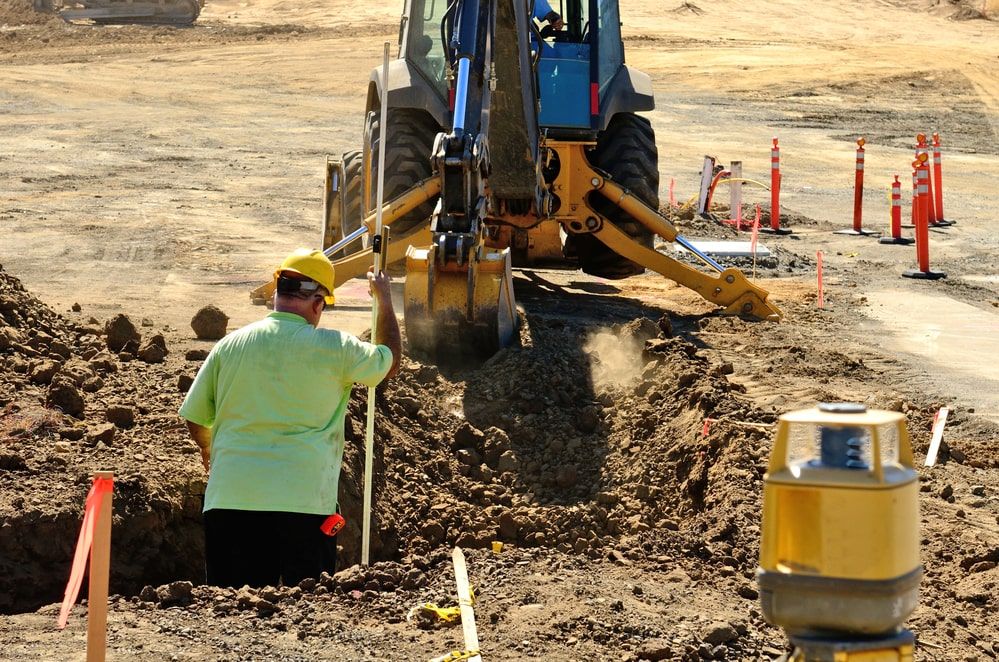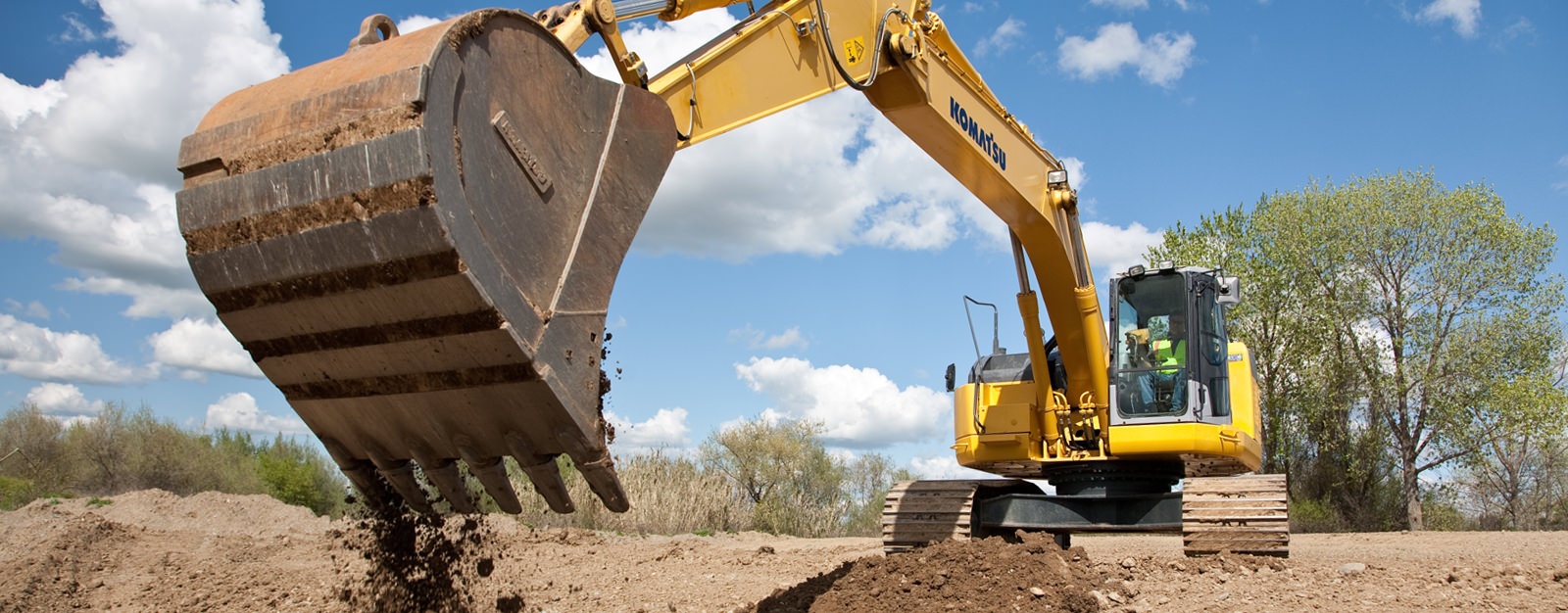Lancaster Excavation - Specialist Excavation Solutions in Lancaster, OH
Wiki Article
Comprehensive Excavation Techniques: Grasping the Basics for Success
In the world of building and civil design, the importance of efficient excavation techniques can not be overemphasized. The careful preparation, accurate implementation, and precise interest to detail required in excavation projects demand a comprehensive method that includes different fundamental facets. From preliminary dirt evaluation to the execution of security procedures and normal progress tracking, understanding these core components is important for accomplishing success in any type of excavation undertaking. However, real mastery exists not just in understanding these basics yet in effortlessly integrating them to browse the intricacies of excavation tasks with skill.Recognizing Excavation Task Planning

Successful excavation projects are constructed on the structure of comprehensive and precise planning. The initial stage of any type of excavation task is the planning stage, where important choices are made that can dramatically affect the end result of the project. Throughout this stage, it is crucial to gather all relevant details regarding the website, including topographical studies, dirt composition, and any potential risks that may exist. Comprehending the project extent, budget plan, and timeline restrictions is vital for creating a comprehensive excavation plan that makes certain the job's success.
One secret aspect of excavation job planning is the advancement of a thorough timeline that details the sequence of deadlines, landmarks, and activities. This timeline acts as a roadmap for the task group, permitting them to track progress and make necessary modifications to ensure the job remains on timetable. Furthermore, a distinct budget that accounts for all expenditures, including tools rental, labor prices, and products, is vital for staying clear of cost overruns and hold-ups. By very carefully thinking about all these elements throughout the drawing board, excavation projects can be implemented efficiently and efficiently, leading to successful end results.
Soil Analysis and Website Analysis
Carrying out thorough soil analysis and site analysis is an essential action in the prep work phase of any type of excavation job. Soil analysis entails determining the make-up, structure, and buildings of the soil at the excavation site. This info is vital for comprehending the dirt's bearing ability, moisture material, and capacity for erosion, which are crucial consider identifying the excavation techniques and devices required for the project.Site examination goes beyond soil analysis and encompasses a broader evaluation of the general site conditions. This examination includes identifying any kind of prospective risks, such as below ground utilities, environmental worries, or unstable surface, that could impact the excavation procedure. By extensively assessing the site, task managers can create reliable excavation strategies that prioritize safety, efficiency, and environmental management.
Using sophisticated technologies like ground-penetrating radar, soil tasting, and drone studies can enhance the precision and efficiency of dirt evaluation and website analysis. Spending time and resources in these initial steps can ultimately save time and prevent costly delays or issues throughout the excavation procedure.
Devices Option and Application
Efficient excavation tasks depend heavily on critical equipment choice and application to ensure ideal efficiency and performance. Picking the ideal tools for the work is crucial in taking full advantage of efficiency and minimizing downtime. Aspects such as the sort of soil, depth of excavation, and job scope play a considerable role in figuring out the most suitable equipment for the task handy.
In enhancement to choosing the ideal tools, appropriate utilization is key to job success. Operators should be educated to take care of the tools safely and successfully - excavating ohio. Regular upkeep checks and prompt repair services assist protect against failures and make certain consistent performance throughout the job
Safety And Security Procedures and Laws Conformity
In the realm of excavation tasks, focusing on precaution and conformity with laws is paramount to making sure a visit the website protected and lawfully audio functional environment. Precaution encompass a variety of techniques, including conducting extensive site evaluations, executing proper signs and obstacles, and providing adequate safety and security training for all personnel associated with the excavation process. Adherence to guidelines, such as OSHA requirements in the USA, makes certain that the excavation project fulfills the essential requirements to safeguard employees, spectators, and the surrounding atmosphere.
Surveillance Progression and Adjusting Techniques
Just how can forecast supervisors properly track the innovation of excavation tasks YOURURL.com and adapt their strategies accordingly to maximize results? Tracking progress is important for ensuring that excavation tasks remain on track and fulfill deadlines. Job managers can make use of different tools and methods to track development, such as daily report card, regular website evaluations, and progressed monitoring technologies like drones and GPS tracking systems. By constantly checking the task's innovation, supervisors can recognize any possible hold-ups or concerns beforehand and take aggressive actions to address them.
Conclusion
Finally, grasping the fundamentals of comprehensive excavation approaches is essential for the success of any project. By understanding task preparation, evaluating soil and site conditions, choosing proper equipment, adhering to security laws, and monitoring progression, task supervisors can ensure a smooth and reliable excavation procedure. Implementing these strategies will bring about effective end results and reduce potential threats or obstacles during the excavation project.
The first stage of any kind of excavation job is the preparation phase, where crucial decisions are made that can substantially impact the result of the project. Understanding the job timeline, scope, and budget constraints is important for developing a thorough excavation plan that ensures the task's success.
Exactly how can forecast supervisors properly track the improvement of excavation projects and adapt their approaches accordingly to maximize end results? By carefully checking development and being eager to adjust techniques, project supervisors can boost the general success of excavation tasks.
By understanding project preparation, analyzing dirt and site conditions, selecting proper devices, abiding with safety and security guidelines, and keeping track of development, task supervisors can make certain a effective and smooth excavation procedure.
Report this wiki page